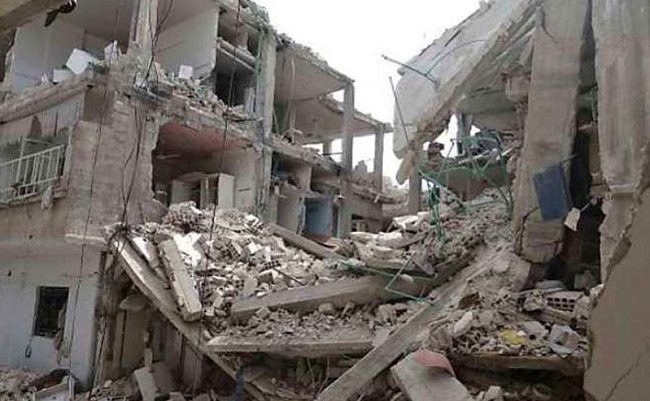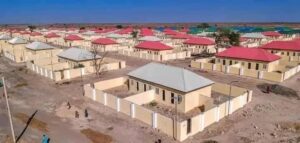
Building collapses menace in Lagos, causes, human effects
By Esther Agbo
Building collapses in Lagos have become increasingly common as there are frequent media reports of such incidents in major Lagos cities like Lagos island, Lekki, Victoria Island, Yaba etc.
However, Lagos State is making every effort to tackle the issue of building collapses, which are primarily caused by industry stakeholders cutting corners, particularly in obtaining the necessary construction permits.
According to the Building collapse prevention guild, as of 2024, there have been 11 recorded building collapses in Nigeria, with Lagos accounting for five, Anambra three, and Kano, Niger, and Plateau each reporting one incident.
On May 30, 2024, a four-story building on Lagos Island collapsed, trapping an unknown number of individuals. The collapse occurred near the Oba of Lagos palace at Iga Iduganran.
The Lagos State Commissioner for Information and Strategy, Gbenga Omotosho, confirmed the incident on his X (formerly Twitter) account, stating that eight people had been rescued and efforts were ongoing to retrieve two more individuals from the rubble with the assistance of the Lagos State Emergency Management Agency who were actively involved in the rescue operations.
Another collapse also happened when a mosque, struck by an excavator, collapsed in the Papa Ajao area of Lagos State, killing an 11 years old girl and three others.
These are just a few out of many other building collapses in Lagos.
In February 2024, in a bid to avert the rising trend of building collapses in Lagos, the Lagos State Building Control Agency (LASBCA) embarked on a vigorous campaign to identify and rectify structural deficiencies in the city’s architecture.
Over the past year, the agency has published a comprehensive list detailing more than 435 buildings with critical structural issues, an initiative aimed at alerting residents and urging them to vacate these hazardous structures.
The Director of Public Affairs at LASBCA, Olusegun Olaoye, reacted to the increasing incidence of building collapses by unveiling the government’s proactive measures to enhance urban planning and regulatory enforcement, and also significantly ramped up its oversight activities, targeting illegal constructions and unqualified personnel responsible for substandard buildings.
According to him, Building collapses often stem from several factors, including the employment of non-professionals, the use of substandard materials, and neglect of building codes. He emphasised that addressing these issues is critical to mitigating the risks associated with old and deteriorating structures.
However, to combat these challenges, LASBCA strengthened its monitoring capabilities, ensuring that construction practices comply with both national and state building codes.
The agency has also been vigilant in preventing the unauthorised conversion of existing structures, which often contributes to structural weaknesses.
Building collapses can occur for various reasons, some of which are human-made while others are natural. While we can often prevent collapses caused by human factors, natural disasters like earthquakes, tsunamis, and floods are beyond our control, though some can be managed.
In Nigeria, we are fortunate to face fewer natural disasters, therefore most building collapses here result from human errors and negligence.
The pioneer President of the Building Collapse Prevention Guild, Kunle Awobodu, has attributed the frequent building collapses in Lagos to weak regulations. He criticised the government’s inability to prosecute and convict those responsible for professional negligence in construction.
Awobodu, who was involved in creating some regulatory agencies, highlighted the inadequate staff strength of the building control agency compared to the vastness of Lagos’s built environment. He pointed out that quackery is a significant issue, as developers often do not ensure that construction is handled by professionals, even after the approval of building plans.
Causes
Building collapse can be caused by so many factors that are not limited to faulty design, negligence, incompetence, poor construction practices, foundation failures, excessive loads, and corruption. Natural forces were also identified as contributing factors. The paper offers several recommendations to address these challenges effectively.
Weak Foundations: A strong foundation is crucial for a building’s structural integrity. When the terrain and soil bearing capacity aren’t properly assessed, it can lead to weak foundations. Over time, buildings on poor soil or shallow foundations can shift as the soil settles.
Poor Maintenance can be another factor as every building requires maintenance throughout its lifespan. Neglecting maintenance can lead to decay, degradation, and reduced performance, eventually causing the building to collapse.
Another important factor is the Absence of Building or Planning Permit. Starting construction without approved plans from the relevant authorities is illegal. When developers skip proper approvals, faulty designs and plans go unchecked, leading to poor construction quality and potential collapse.
Many buildings in Lagos are constructed with inferior materials to cut costs. Developers often use low-quality cement, weak steel reinforcements, and insufficient concrete mixtures, compromising the structural integrity of buildings. Additionally, many construction projects lack proper oversight and adherence to building codes as contractors sometimes ignore architects and engineers specifications. Failing to adhere to these specifications can significantly contribute to structural failures.
The human toll
The human cost of these collapses is devastating. Families have been torn apart, and communities left in mourning. Each collapse scene is marked by the frantic efforts of rescue workers and the anguished cries of those searching for loved ones.
Survivors face not only emotional trauma but also economic hardship. Many victims were breadwinners, leaving dependents in dire straits. The psychological impact on survivors and rescuers is profound, with many suffering from post-traumatic stress disorder (PTSD).
Call for change
The spate of building collapses has galvanised calls for urgent reforms. Civil society organisations, urban planners, and concerned citizens should demand stronger regulations, better enforcement, and greater accountability.
The Lagos State Government has been addressing this crisis. Governor Babajide Sanwo-Olu announced the establishment of a Building Regulatory Task Force to oversee construction projects and ensure compliance with safety standards. The government also plans to review existing buildings and mandate necessary reinforcements for structures deemed unsafe.
However, these promises have been met with scepticism. Past assurances have often failed to translate into concrete action. For lasting change, systemic corruption must be rooted out, and a culture of accountability must be fostered within the construction industry.




